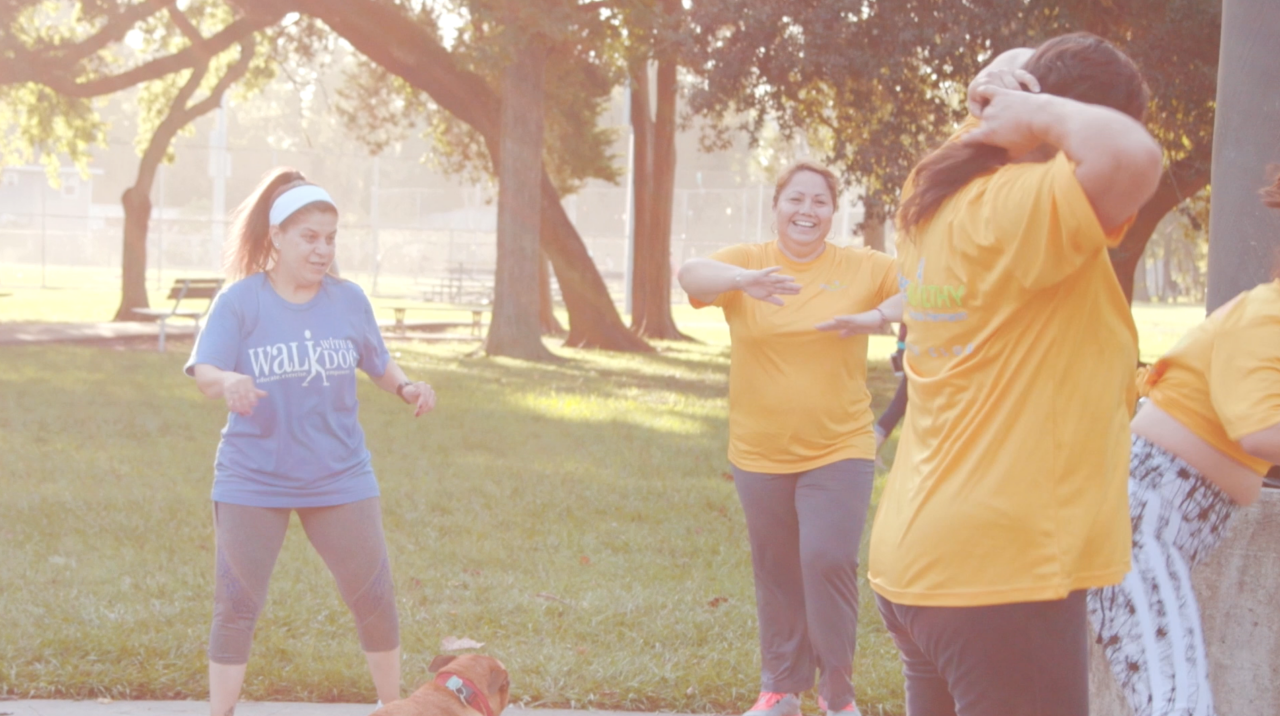

By Shao-Chee Sim
EHF’s VP for Research, Innovation, and Evaluation
2023 has been an important year in advancing Medicaid’s policy agenda in addressing non-medical drivers of health (NMDOH) in Texas. After years of building support and increasing momentum among various Medicaid stakeholders, including Managed Care Organizations (MCOs) that offer Medicaid health insurance and medical providers, the Texas Health and Human Services Commission (HHSC) released its groundbreaking Texas Medicaid and CHIP Services Non-Medical Drivers of Health Action Plan in February 2023.
The plan identified three major non-medical focus areas: food insecurity, housing, and transportation. In June, Governor Greg Abbott signed HB 1575, a bill that requires HHSC to develop standardized screening questions related to non-medical needs and allows community health workers and doulas to become reimbursed by Medicaid for their work to address those needs through HHSC’s children and pregnant women’s program.
While it will take some time for HHSC to develop strategies and protocols to implement these policy changes, will nonprofits be ready? Specifically, questions have been raised whether community-based organizations have sufficient infrastructure and capacity to enter contracts and/or develop financial relationships with MCOs.
Through several EHF-funded special initiatives including the MCO NMDOH Learning Collaborative, Clinic Pathways Approach and Texas Accountable Communities for Health Initiative, EHF has been on a multi-year journey to build the readiness and capacity of MCOs, Federally Qualified Health Centers and community health collaboratives in addressing NMDOH needs of Medicaid beneficiaries.
Alongside these efforts, we have also supported several timely research, planning and toolkit reports to provide an early look of nonprofit capacity to engage with health care payers.
In this article, we would like to offer important summaries from these four research reports:
- Accelerating Partnerships Between Food Banks and Medicaid Managed Care Organizations
- Early Approaches to Community-Based Organization Networks and Community Care Hubs to Address the Non-Medical Drivers of Health in Texas
- Accountability Health Communities Model: Sustainability in Texas
- Value of Investing in Social Determinants of Health Toolkit: Grounding Value in Authentic Partnerships
Accelerating Partnerships Between Food Banks and Medicaid Managed Care Organizations
In this Food Bank and MCO Partnership report, researchers explained three levels of partnership opportunities. Community level interventions are the simplest type of partnership. These may include providing funding for a community van, providing food for a pantry located in a health clinic that is available to the public, or sponsoring food drives.
As partnerships move along the continuum to include managed referrals or targeted food intervention, more complex partnership terms need to be addressed such as data sharing and reporting. At a more intensive level, food banks and MCOs could partner in targeted food intervention focusing on addressing the food insecurity needs of Medicaid members. For example, some food banks are working with MCOs to provide medically-tailored meals and/or exploring alternative food delivery options like using ride share companies.
As more food banks are moving into managed referrals and targeted food interventions, researchers highlighted five key areas for consideration to support the development of sustainable partnerships. These areas include: (1) encouraging the adoption of sustainable financing models; (2) dedicating resources to support CBO relationship building; (3) investing in interoperable data systems; (4) providing capacity building support to encourage the development of network models; and (5) leveraging existing models to scale CBO networks and community care hubs.
Early Approaches to Community-Based Organization Networks (CBOs) and Community Care Hubs to Address the Non-Medical Drivers of Health in Texas
In another report documenting some early CBO network efforts in Texas to address NMDOH needs of community members, researchers highlighted several promising models, including the Pathway Community Hub, Texas Accountable Communities for Health, Accountable Health Communities, Connected Communities of Care, Health Equity Collective, Model Community, Texas Veterans Network, Food Bank Referral Partner Program, Housing Hub, and Doulas for Medicaid Members in Austin.
Drawing from their interviews, researchers identified some similar recommendations: (1) encouraging the adoption of sustainable financing models; (2) dedicating resources to support CBO relationship building; (3) investing in interoperable data systems; (4) providing capacity building support to encourage the development of network models; and (5) leveraging existing models to scale CBO networks and community care hubs.
Accountability Health Communities Model: Sustainability in Texas
In a study with staff and stakeholders who had worked on the Center for Medicare and Medicaid Innovation’s Accountable Health Communities (AHC) model in three Texas sites (Dallas, Houston, San Antonio), researchers partnered with Bridge Organization’s staff, health system front-line implementers, middle managers, leadership, and community-based organization (CBO) leadership and staff to gain comprehensive perspectives of the ACH model’s activities.
The ACH model is designed to address NMDOH needs of Medicare and Medicaid beneficiaries to reduce Emergency Department utilization and health care costs.
Some of the major takeaways identified by these researchers include professionalization of community health worker workforce, CBO capacity building, and sustainable financing and policy change.
Value of Investing in Social Determinants of Health Toolkit: Grounding Value in Authentic Partnerships
Consistent with themes and key takeaways reflected in the reports above, the project team at the Institute for Medicaid Innovation develops a very useful continuum to describe the CBO-MCO partnership. The continuum starts with one way information sharing, to inhabiting shared spaces, to collaborations on one-time or discrete activities, to recurring activities of increased frequency, to sustained infrastructure for mutually beneficial ventures, and to codesign of innovations and system changes.
Rather than deficit-framing, the toolkit is grounded in asset framing—defining people by their aspirations and contributions instead of their challenges. Adopting asset-framing is a critical mindset for developing trust with potential CBO partners.
As the toolkit report reveals, both Medicaid MCOs and CBOs interviewed in this research cautioned against rushing the time horizon. It takes time to build and sustain relationships and trust. CBOs often do not have dedicated resources allocated to creating and sustaining relationships like many MCOs do. This is another reason that this toolkit is designed to support MCOs in taking initiative—and taking the time—to prepare thoughtfully before engaging community organizations. The report identifies several promising attributes for MCOs and CBOs to consider as they enter a long-term relationship:
- Expertise is everywhere with MCOs as well as CBOs.
- The Medicaid MCO is part of the community.
- Words with actions speak volumes.
- Trust is earned.
- Small steps can lead to high aims.
- Engaging with many partners honors diversity.
- Trust requires transparency.
- Being realistic is a win-win.
- Authentic partnerships are worth the effort.
Summary
These four reports reveal many similar and yet important themes and early lessons to advance NMDOH needs of Medicaid beneficiaries in Texas. While several initiatives and collaborative efforts have just begun in the past few years, it is too early to make any definitive assessment about the impact of these pilot projects.
In fact, it is encouraging to find out that many of these efforts started before the release of HHSC’s NMDOH Action Plan as well as the passage of HB 1575. With this new policy momentum, philanthropies, state agencies, MCOs, health systems, and nonprofits all share a mutual interest and desire to further build the readiness and capacities of CBOs to engage with MCOs. That’s because we all share a mutual long-term goal to improve the health outcomes of Medicaid beneficiaries in our state.